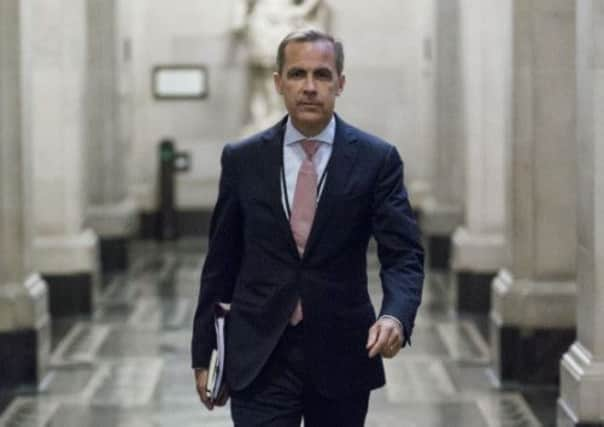Booming services sector adds momentum to UK’s recovery


Business activity in the sector expanded at the quickest pace since late 2006, when the economy was booming.
The strong gain in new work put pressure on capacity, leading to the sharpest rise in backlogs of work since 2000. It also encouraged solid growth in payrolls.
Advertisement
Hide AdAdvertisement
Hide AdThe July purchasing managers index for the service sector showed an acceleration of growth for the seventh consecutive month.
It displayed a reading of 60.2, up from 56.9 in June, with any reading of 50 or above representing growth in the closely-watched index.
PMI surveys for the manufacturing and construction sectors last week showed equally positive numbers, suggesting that the recovery is becoming increasingly broad based.
Paul Smith, senior economist at survey compiler Markit, said the forward-looking elements of the survey point to a further strengthening of GDP in the third quarter.
Advertisement
Hide AdAdvertisement
Hide AdHe added that the UK is heading towards “escape velocity”, the term used by the new Bank of England Governor to describe sustainable growth.
David Noble, chief executive of the Chartered Institute of Purchasing and Supply, said July could signal a significant month in the turnaround of the fortunes of UK plc after registering levels of performance not seen since before the financial crisis.
The composite index for the three sectors showed the highest reading since 1998.
Howard Archer, an economist at IHS Global Insight, said: “The hope is that this recent firming economic activity underpins further, sustained improvement in business and consumer confidence, which in turn encourages businesses to invest and employ more, and consumers to spend more.”
Advertisement
Hide AdAdvertisement
Hide AdMark Carney, who started work as Governor last month, will hope to add to the momentum tomorrow when he outlines a new policy to help reassure financial markets, businesses and households about future interest rate movements.
The introduction of forward guidance is billed as the biggest change at the Bank since 1997 when it was granted independence.
In Yorkshire, economists welcomed the PMI survey but cautioned against reading too much into headline figures.
Professor Iain Cacher, of Leeds University Business School, said an “abnormally nice summer by British standards” led to an increase in consumer spending.
Advertisement
Hide AdAdvertisement
Hide AdGovernment schemes such as Help to Buy also triggered a rise in housebuilding, he added.
He questioned the spread of growth too, suggesting that London and the South East have been the main beneficiaries while the North East continues to struggle. “For some people, there’s never been a recession. For other people, it has hit them hard and will continue to hit them hard because of where they are.
“The biggest challenge is to make sure the growth is spread across the country,” said Professor Cacher.
New analysis from consultancy Capital Economics said that while most of the UK’s regions seem to be moving in convoy, London and the North West are probably taking the lead.
Advertisement
Hide AdAdvertisement
Hide AdRichard Holt, a regional economist, said that Northern Ireland and the North East look to be struggling to keep the rest in sight.
Mr Holt said that Yorkshire appears to be tracking the national economy with modest growth.
London is growing as least as fast as the nation overall, and probably a little faster, he added.
Across the Pennines, Mr Holt said the North West’s large economy is expanding, helped by the automotive and business services sectors.
But the North East has continued to underperform, he said, with its overhang of old industries squeezed by globalisation.